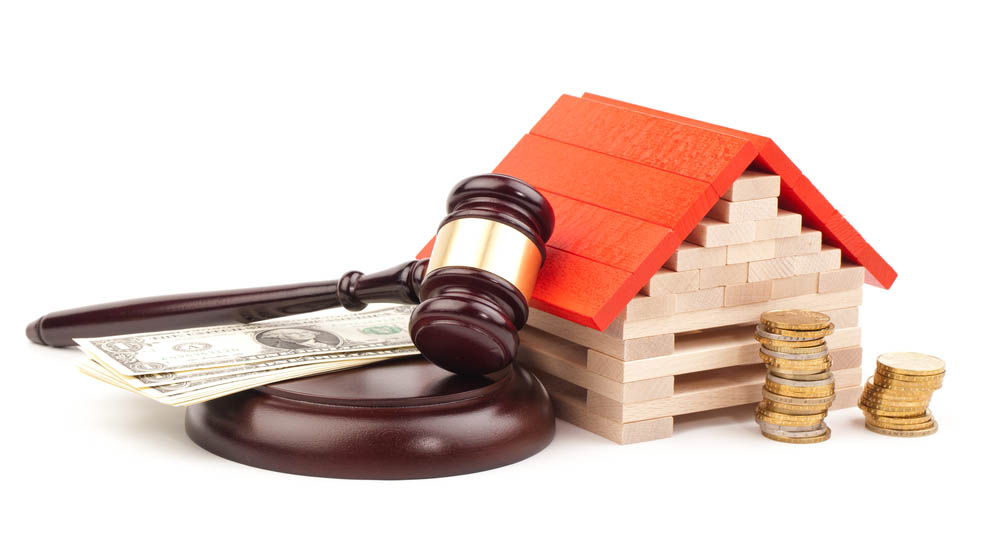A judgment lien against you can have a variety of distressing and negative consequences. Read on to learn everything you need to know about judgment liens in Indiana, including how they work and how to avoid them.
What Is a Judgment Lien?
The judgment lien definition is that if you owe a creditor money and don’t pay, they can sue you for the balance. If the court rules in their favor, the creditor can file a judgment lien against you, which means that the court has permitted them to forcefully collect that debt from you. This allows them to take possession of your real estate holdings, personal property, or business. If the creditor has your date of birth and social security number, they may be able to garnish your bank account and apply that money toward your debt balance.
Judgment Liens in the Hoosier State
In Indiana, judgment liens last for 10 years. If a creditor gets a judgment lien against you, they automatically get a lien against any real estate you own in the county where they filed the lawsuit. The creditor can also “index the judgment” in other counties to find out if you have property there, by sending a certified copy of the judgment to a court clerk in that county. If you own real estate in another state, the creditor must abide by the laws of that state.
What Are the Negative Consequences of a Lien
A judgment lien can have several negative consequences. One of the most significant consequences is the damage it can cause to your credit score, making it challenging to secure loans or obtain credit in the future. Additionally, a lien can also result in the seizure of personal property or real estate holdings, leading to the loss of valuable assets. Even after a law was passed in 2018 to prohibit creditors from reporting liens to credit bureaus, lenders can still search for judgments using public records, making it harder to get a job or a loan. Lastly, you must pay the lien in full before you can sell or refinance any property.
What to Do if You Have a Judgment Lien Against You
The simplest way to remove a judgment lien is to pay the creditor. If that’s not possible for you, another option is to avoid it through Chapter 7 or Chapter 13 bankruptcy court. Here’s how that works:
Chapter 7
If you successfully file for Chapter 7 bankruptcy, you receive protection from creditors and a discharge of most debt. Through the Chapter 7 bankruptcy process, you can file for a Motion to Avoid a Judicial Lien. With a judgment lien after Chapter 7 discharge, the bankruptcy trustee will sell your nonexempt property and distribute it to your creditors.
Indiana law allows some property and other assets to be exempt, including real estate equity up to $19,300 if it’s your personal residence. If you file jointly with a spouse, you can double the exemption amount. Indiana also exempts some specific retirement and insurance benefits and personal property. To qualify for these exemptions in Indiana you must have lived in the state for at least 730 days prior to filing bankruptcy.
Some of these exemptions include:
- Pension and retirement benefits
- Personal property
- Uniforms, arms, military equipment
- Health aids
- Medical care, education, or health savings accounts
- Qualified tuition program
- Interest in a refund or earned income credit for exempt bankruptcy property
- Spendthrift trust
- Insurance Benefits
- Miscellaneous
- Unemployment compensation benefits
- Workers’ compensation
- Specific partnership property
- Lesser of 75% of earned but unpaid wages or 30 times the Federal minimum wage
To avoid the seizure of any assets or property, Chapter 13 may be a more suitable choice for your situation.
Chapter 13
Chapter 13 bankruptcy offers you protection from creditors and helps stop foreclosures and other creditor collection efforts. You can then file a motion for the court to remove the lien and pay the debt over time through a payment plan.
Do You Have a Judgment Lien Against You? We Can Help.
Sawin and Shea provides expert, nonjudgmental legal advice for Indiana area residents. We understand that it is distressing to have a judgment lien against you. We can help explain your options including whether Chapter 7 or Chapter 13 bankruptcy are right for you. Contact us to schedule a free consultation – 317-759-1483.



